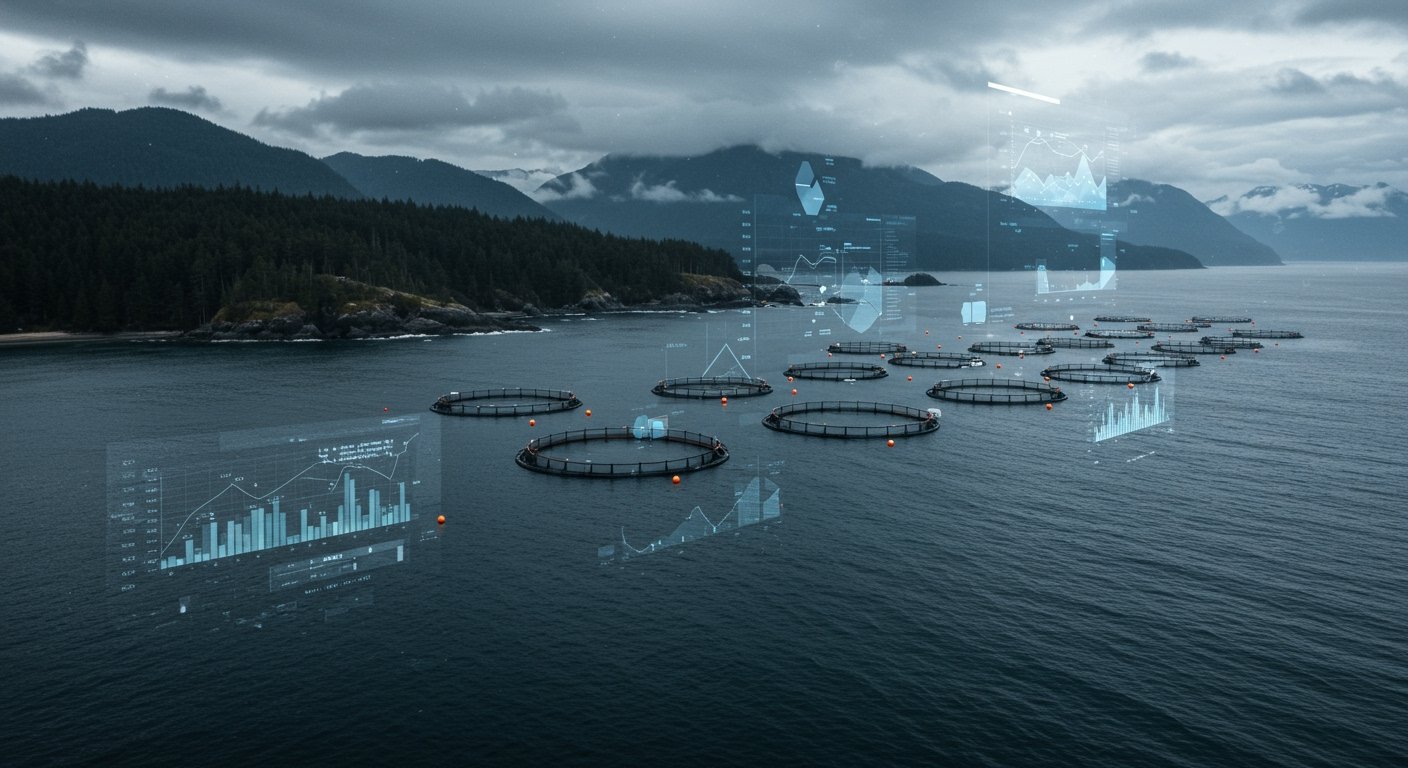Vancouver, British Columbia — New examinations of federal fisheries data by government scientists are intensifying the complex debate and fueling legal challenges surrounding Ottawa’s controversial decision to phase out open-net salmon farms along the coast of British Columbia by 2029.
The analyses raise significant questions about the impartiality and transparency of the Department of Fisheries and Oceans (DFO) as it navigates the delicate balance between protecting marine health and supporting the interests of the fishing industry, particularly the aquaculture sector.
The Latest Scientific Findings
A recent report, published on April 22 in the Journal of Fish Diseases, brings these issues into sharp focus. The study specifically analyzed sea lice monitoring data and production biomass data sourced from companies including Grieg Seafood BC Ltd., MOWI Canada West Inc., and Cermaq Canada Ltd. The primary geographic focus of this analysis was the Discovery Islands region, an area that has been central to the farm removal policy. Farm production in the Discovery Islands began to be phased out in 2021, reaching zero production levels since 2022.
Crucially, the data utilized in the report is sourced from a database managed by the B.C. Salmon Farmers, the industry association representing many of the companies operating fish farms in the province.
Policy Context and Controversy
Ottawa’s policy to transition open-net salmon farms out of BC waters by 2029 is predicated on environmental concerns, particularly the potential impact of farm-raised salmon on wild salmon populations through the transmission of diseases and parasites like sea lice. Open-net farms, by their nature, have direct interaction with the surrounding marine environment, allowing for potential pathogen exchange.
The decision has been met with strong opposition from the aquaculture industry and some coastal communities that rely on the economic activity and employment provided by the farms. Proponents of the phase-out, including many environmental groups and First Nations, argue it is necessary to protect wild salmon stocks, which are culturally and ecologically vital.
Questions of Impartiality and Data Use
The re-examination of industry-collected data by federal scientists, as highlighted in the Journal of Fish Diseases paper, complicates the narrative. Critics argue that the department’s use and interpretation of data, especially when sourced from the industry it regulates, could be subject to perceived or actual bias. The ongoing scientific discourse and conflicting interpretations of findings add layers of complexity to the policy implementation.
The original headline noted that the science analyses continue to “muddy the waters,” a phrase reflecting the lack of clear, universally accepted scientific consensus on the precise scale of risk posed by open-net farms to wild salmon and the degree to which their removal will impact wild populations.
Legal Challenges Mount
The scientific ambiguity and policy implementation are now the subject of significant legal action. The ongoing controversy underpins a civil lawsuit that has been filed in the British Columbia Supreme Court.
The lawsuit makes serious allegations, including that a former fisheries minister engaged in a “bad-faith” consultation process and utilized “biased information.” The plaintiffs in the case allege that this information conflicted with DFO’s own internal scientific assessments when the minister made decisions denying aquaculture licenses in the critical Discovery Islands area.
This legal challenge suggests that the core of the dispute extends beyond scientific interpretation to questions of procedural fairness, governmental transparency, and the integrity of the decision-making process itself. The outcome of this lawsuit could have profound implications for the future of aquaculture in British Columbia and the government’s approach to balancing environmental mandates with industry interests.
Industry and Government Perspectives
The B.C. Salmon Farmers, whose database provided the information for the Journal of Fish Diseases report, have consistently argued that their operations meet stringent environmental standards and that the impact on wild salmon is manageable through mitigation efforts. They often cite other data and scientific perspectives to support their view that the phase-out is unnecessary and harmful to their businesses and the communities they support.
DFO, on the other hand, maintains that its decisions are based on the best available science and are aimed at protecting wild salmon populations in accordance with the government’s mandate. However, the legal challenges and the scrutiny of data sources and scientific interpretations highlighted by analyses like the one in the Journal of Fish Diseases paper underscore the intense pressure and complexity the department faces.
Looking Ahead
The coming months will be critical as the legal case proceeds and the 2029 deadline for the phase-out approaches. The interplay between scientific findings, industry data, government policy, and legal challenges creates a highly volatile environment. The outcome of this battle will not only shape the future of salmon farming in British Columbia but may also set precedents for how environmental policies affecting major industries are developed and implemented in Canada.








